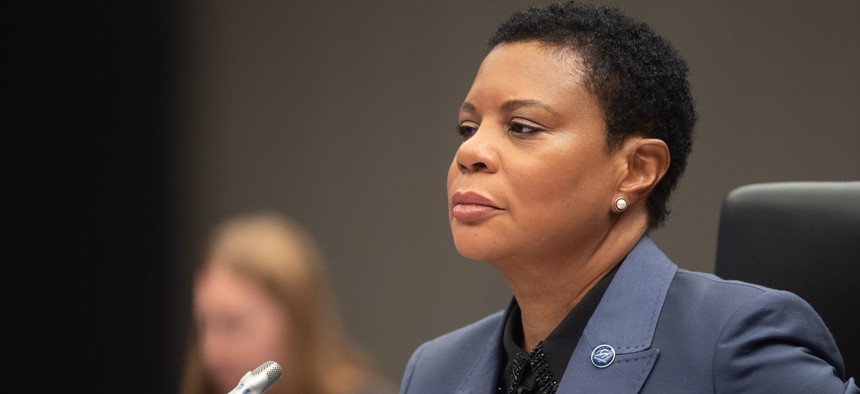White House OSTP Deputy Director to Step Down

13 June 2022, Hessen, Frankfurt/Main: Alondra Nelson, Director of Science and Technology Policy at the White House of the United States of America (USA), attends a meeting of G7 science ministers at the "Steigenberger Frankfurter Hof" hotel. picture alliance /Getty
Alondra Nelson will leave her White House post on Feb. 10.
Alondra Nelson, the deputy director of the White House Office of Science and Technology Policy, announced her upcoming departure in a Twitter thread Sunday.
Nelson served as acting director of OSTP over 8 months in 2021 and was the first woman of color to lead OSTP. She told Axios that her last day will be Feb. 10, after which she will return to the Institute for Advanced Study in Princeton, N.J.
“This is my last week @WHOSTP,” she said in the tweet. “It's been the honor of my life to serve @POTUS , @VP , and the American public, and advance this Administration's distinct vision for science, technology and innovation that expands opportunity, well being, rights and equity. It was an honor to be asked at a critical moment for our nation to build a team that considers the social implications of science and technology more centrally in U.S. policy, as a necessary component of American innovation."
Nelson led OSTP’s newly-created Science and Society team, and served as acting director for several months in 2022 after the resignation of Eric Lander amid reports of bullying and a hostile work environment. The Senate confirmed Dr. Arati Prabhakar as OSTP director in September.
Some of Nelson’s most critical work came in the field of artificial intelligence, where her team at OSTP released the Blueprint for an AI Bill of Rights. The blueprint built on prior Biden administration emerging technology efforts and has the goal of supporting “the development of policies and practices that protect civil rights and promote democratic values in the building, deployment and governance of automated systems.”
The blueprint was is rooted in five principles: safe and effective systems; algorithmic discrimination protections; data privacy; notice and explanation; and human alternatives, consideration and fallback.






